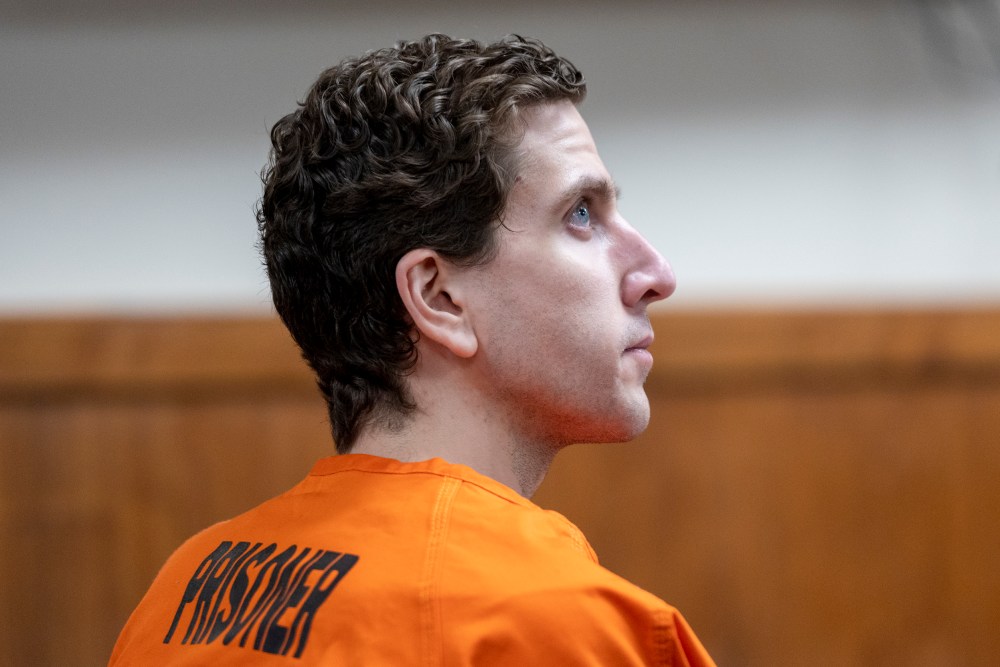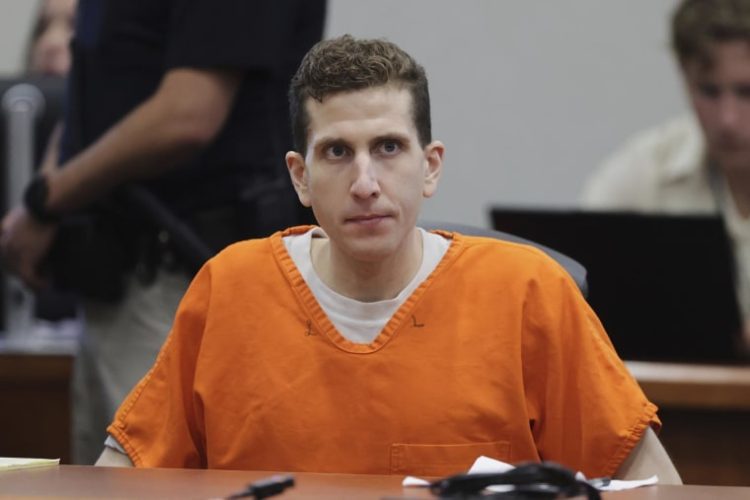Introduction: Who Is Bryan Kohberger?
Bryan Kohberger is a name that has become synonymous with one of the most chilling criminal cases in recent American history.
Once a promising Ph.D. student in criminology, Kohberger’s life took a dark and irreversible turn when he was arrested and later convicted for the brutal murders of four University of Idaho students in November 2022.
His case has captivated the nation, not only for the horrific nature of the crime but also for the unsettling irony of his academic focus: criminal behavior.
This article explores Kohberger’s background, education, psychological profile, and the legal proceedings that culminated in his sentencing to four consecutive life sentences in July 2025.

Early Life and Family Background
Born on November 21, 1994, in Albrightsville, Pennsylvania, Bryan Christopher Kohberger grew up in a working-class family.
His father, Michael Kohberger, worked as a maintenance technician, while his mother, Maryann Kohberger, served as a paraprofessional in the local school district.
He has two older sisters, Amanda and Melissa, both of whom have remained largely out of the public eye since his arrest.
Kohberger’s upbringing was described as quiet and uneventful. He attended Pleasant Valley High School, where he was reportedly bullied for his weight and social awkwardness.
In his senior year, he lost a significant amount of weight, nearly 80 pounds, which marked a dramatic shift in his appearance and demeanor.
Academic Journey and Criminology Focus
Kohberger’s academic path was deeply rooted in psychology and criminal justice:
Associate Degree in Psychology: Northampton Community College (2018)
Bachelor’s and Master’s in Criminal Justice: DeSales University (2020, 2022)
Ph.D. Student in Criminology: Washington State University (2022–2023)
At DeSales University, Kohberger studied under Dr. Katherine Ramsland, a renowned forensic psychologist known for her work on serial killers.
His master’s thesis reportedly focused on understanding the emotions and decision-making processes of criminals during the commission of violent acts.
In August 2022, Kohberger moved to Pullman, Washington, to begin his Ph.D. program at Washington State University, located just 10 miles from the University of Idaho.
He served as a teaching assistant but was terminated in December 2022 due to behavioral concerns and complaints from students.
The Idaho Murders: A Timeline of Horror
On November 13, 2022, four University of Idaho students, Kaylee Goncalves, Madison Mogen, Xana Kernodle, and Ethan Chapin, were found stabbed to death in their off-campus home in Moscow, Idaho.
The victims were attacked while asleep, and the crime scene showed no signs of forced entry.
The investigation revealed:
DNA evidence on a knife sheath left at the scene
Surveillance footage of a white Hyundai Elantra near the residence
Cellphone data placing Kohberger near the victims’ home multiple times before the murders
A DoorDash driver’s testimony placing Kohberger near the scene shortly before the killings
Kohberger was arrested on December 30, 2022, at his parents’ home in Pennsylvania and extradited to Idaho.
He was charged with four counts of first-degree murder and one count of felony burglary.

Legal Proceedings and Trial Developments
Initially, Bryan Kohberger stood silent during his arraignment, prompting the court to enter a not guilty plea on his behalf.
The trial was scheduled for August 2025, but in a surprising turn, Kohberger pleaded guilty on July 2, 2025, as part of a deal to avoid the death penalty.
Key Legal Milestones:
Change of Venue: Moved from Latah County to Boise, Idaho, due to concerns about pretrial publicity
Gag Order Lifted: In July 2025, Judge Steven Hippler lifted the long-standing gag order, allowing law enforcement and attorneys to speak publicly
Sentencing: Kohberger received four consecutive life sentences without the possibility of parole, plus 10 years for burglary
The plea deal also included a waiver of his right to appeal and challenge the sentence, but did not require him to disclose a motive or explain his actions.
Psychological Profile and Behavioral Patterns
Kohberger’s academic interest in criminology has led many to speculate about his psychological makeup.
Former classmates described him as socially awkward, intense, and obsessed with crime.
He reportedly followed three of the victims on Instagram and messaged one repeatedly.
Experts have debated whether Kohberger fits the profile of a psychopath or mass killer.
Forensic psychologist Dr. John Delatorre noted that Kohberger’s behavior suggests a long-standing struggle with rejection and emotional distress, rather than a sudden “snap.”
His fascination with criminal behavior, combined with his academic pursuits, raises unsettling questions about whether his studies influenced his actions, or vice versa.
Academic and Professional Achievements
Before his arrest, Bryan Kohberger had a modest academic record:
Published Research: Contributed to studies on criminal psychology and offender behavior
Teaching Assistant: Assisted in undergraduate criminology courses at WSU
Security Guard: Worked part-time for the Pleasant Valley School District
While his achievements were not widely recognized, his academic trajectory suggested a deep commitment to understanding criminal behavior, ironically, the very behavior he would later be convicted of exhibiting.
Personal Life and Public Perception of Bryan Kohberger
Kohberger was reportedly vegan, maintained a strict fitness regimen, and lived alone in Pullman.
He had no known romantic relationships or children. His social media presence was minimal, and he kept a low profile among peers.
After his arrest, former acquaintances described him as “creepy,” “withdrawn,” and “intense.” Some noted a shift in his personality after his dramatic weight loss in high school, suggesting a growing sense of isolation and aggression.
His family released a statement expressing sympathy for the victims and support for Kohberger’s presumption of innocence, but they have remained largely silent since his guilty plea.
Media Coverage and Public Reaction
The case drew national attention, with extensive coverage from outlets like CNN, NBC, and The Independent.
Social media platforms were flooded with speculation, misinformation, and amateur sleuthing, prompting law enforcement to warn against online harassment and rumor-mongering.
The plea deal sparked mixed reactions:
Some families welcomed the closure and avoided a lengthy trial
Others, like the Goncalves family, criticized the lack of transparency and demanded answers
Even President Donald Trump weighed in, urging the judge to compel Kohberger to explain his motive.

Conclusion: A Legacy of Tragedy and Unanswered Questions
Bryan Kohberger’s story is a haunting blend of academic ambition and criminal horror.
His transformation from criminology scholar to convicted killer defies easy explanation and leaves behind a trail of grief, confusion, and unresolved questions.
As he begins his life sentence, the families of Kaylee Goncalves, Madison Mogen, Xana Kernodle, and Ethan Chapin continue to seek healing and justice.
The case has sparked broader conversations about criminal psychology, forensic science, and the ethics of studying crime.
Whether Kohberger’s actions were driven by obsession, pathology, or something more complex, one thing is clear: his name will forever be etched into the annals of American criminal history, not as a scholar, but as a symbol of tragedy.
Frequently Asked Questions
Q. Who is Bryan Kohberger?
Bryan Kohberger is a former criminology Ph.D. student who was convicted of murdering four University of Idaho students, Kaylee Goncalves, Madison Mogen, Xana Kernodle, and Ethan Chapin, in November 2022. He was arrested in December 2022 and sentenced to four consecutive life sentences in July 2025.
Q. What was Bryan Kohberger studying before his arrest?
Kohberger was pursuing a Ph.D. in criminology at Washington State University. He previously earned degrees in psychology and criminal justice, and had a particular academic interest in the psychology of criminal behavior.
Q. What evidence linked Kohberger to the Idaho murders?
Key evidence included:
DNA found on a knife sheath at the crime scene
Surveillance footage of a white Hyundai Elantra near the victims’ home
Cellphone data placing him in the area multiple times
Testimony from a DoorDash driver who saw him near the scene
Q. Did Bryan Kohberger go to trial?
No. Although a trial was scheduled for August 2025, Kohberger pleaded guilty on July 2, 2025, as part of a plea deal to avoid the death penalty. He was sentenced to life in prison without parole.
Q. Did Bryan Kohberger explain his motive?
No. Kohberger’s plea agreement did not require him to disclose a motive, and he has remained largely silent about why he committed the murders. Law enforcement has not publicly confirmed a clear motive.
Q. Will Bryan Kohberger ever be eligible for parole or appeal?
Kohberger was sentenced to four consecutive life sentences without the possibility of parole, plus 10 years for burglary. He waived his right to appeal as part of the plea deal, although the judge noted he technically retains that right under federal law.
































